Our Relationship with the Environment
Hi Everyone,
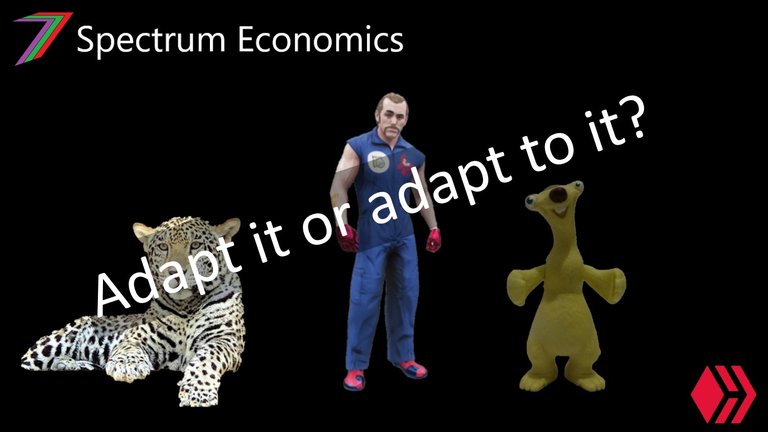
I am very concerned with how we (i.e. humans) treat the environment. In my post Our relationship with other animals and the universal desire for freedom, I discussed, amongst several other topics, our contempt and abuse of animals for our own purposes. Many of us appear to have the same arrogant and/or misguided attitude towards our environment. Many of us treat the environment as if it was put here to serve us. Many of us have little regard for the damage we are causing and how it affects other species and even future generations of people.
The biggest culprits are the Establishment organisations. Big Business pumps out a wide variety of toxic waste and by-products. Governments contribute to contamination with their own expenditure and actions. The media highlights and emphasises inconsequential actions, events and phenomena so as to stir divide between the wannabe environmentalists and the climate agenda sceptics. This creates a situation where neither side are willing to take any meaningful action.
In this post, I explore how we differ in engagement with our environment than any other species of animals. They adapt to their environment while we adapt our environment to suit ourselves. I consider what we have changed and how that affects other species and possibly future generations of people. I also consider the aspects of the environment that we cannot change and how adaption will be our inevitable path if we are to survive as a species.
Definitions of Environment
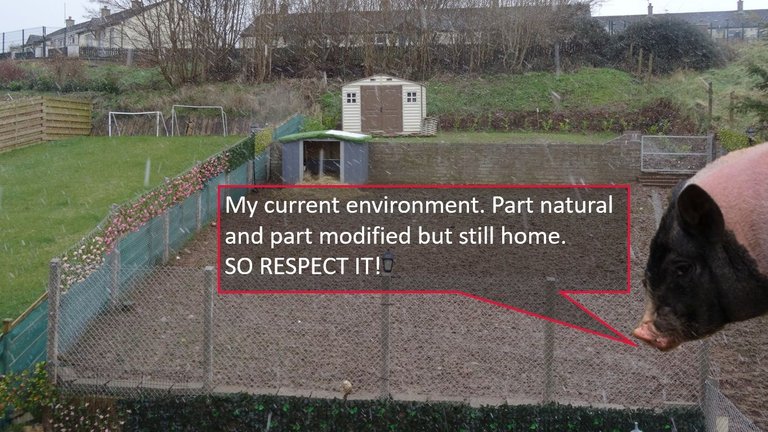
The environment is one of the broadest concepts we can imagine. It is literally everywhere. We will always be part of the environment and so will everyone and everything else. Below are definitions of environment from several dictionaries. These definitions provide some insight into the extent and enormity of it.
The environment:
is the air, water, and land in or on which people, animals, and plants
(Cambridge Dictionary)
are the conditions that affect the behaviour and development of someone or something; the physical conditions that someone or something exists in
(Oxford Learners Dictionary)
are the conditions that surround someone or something: the conditions and influences that affect the growth, health, progress, etc., of someone or something
(Britannica)
the aggregate of surrounding things, conditions, or influences; surroundings; milieu.
Ecology. the air, water, minerals, organisms, and all other external factors surrounding and affecting a given organism at any time.
the social and cultural forces that shape the life of a person or a population.
(Dictionary.com)
Changing to suit the environment
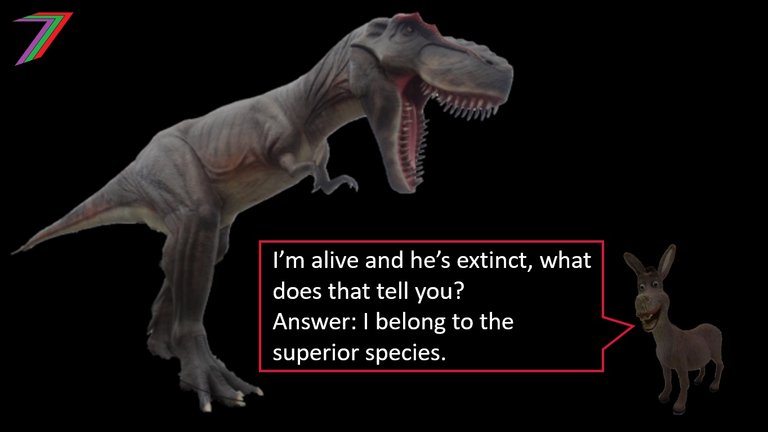
The environment is a key underlying cause of the most significant changes any species needs to make. In nature, animals adapt to their environment or they struggle to survive or not survive at all. The environment can change slowly (e.g. gradual warming or cooling of the atmosphere) or rapidly (e.g. volcanic eruption). It can change predictably (e.g. environment consistently changing with the seasons) or unpredictably (e.g. flash floods).
Adapting to slow changes is easier. Different traits can develop over generations as the animals within the species that are more suited to the change are able outperform those less suited; thus, passing on their genes to the next generation. Survival when there are rapid changes might depend on luck. Some animals may already have the necessary traits to survive under the new conditions; therefore, less effected by change. Animals greatly affected are likely to die out or survive by migrating somewhere else. Animals, instinctly, adapt to predictable changes (e.g. migrating or hibernating). Animals can only instinctly respond to unpredictable and sudden changes if they are capable to do so (e.g. fast moving or able to fly).
The various environments and sub-environments have played a huge role in creating the huge diversity of life we have on this planet. When environments change the animals in it change and often in different ways in order to survive and diversity should continue to grow. Forced migrations causes animals with very different traits to share the same environment. The newcomers need to adapt and the existing species may need to adapt to the newcomers. It appears whatever happens, life finds a way to survive and eventually thrive again. Ability to adapt is usually the key. However, some species have managed to survive by being incredibly hardy (e.g. crocodile).
Changing the environment to suit us
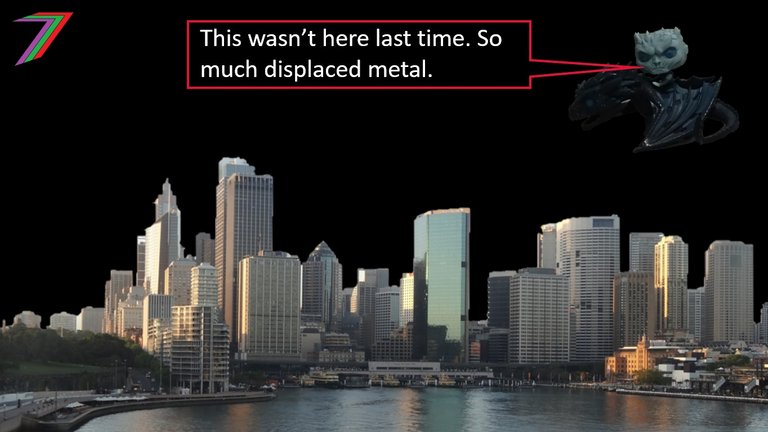
Animals do not appear to choose or are capability of significantly shaping their environment to their needs. They make the most of what is offered to them. Humans are the exception. They have attempted to shape their environments to suit themselves or even create their own environments and sub-environments. Humans have been very successful at changing their immediate environment, They build various forms of infrastructure, move natural resources from place to place, redirect water to where they need it, change the landscape to grow crops and breed animals, and take whatever they like to turn into whatever they want.
In the process of shaping the environment to their will, humans have also severely damaged it.
- They have depleted resources both non-renewable (e.g. minerals, metals, and fossil fuels) and renewable (e.g. plants, water, and air).
- They have contaminated the air, land, rivers, seas, and lakes with waste and by-products.
- They have destroyed habitats of other species to claim the land for themselves.
- They have over farmed land and destroyed its fertility.
- They have forced unnatural rapid change onto other species, which has led to mass extinctions.
- They have killed mass numbers of particular species (e.g. fish), which has caused great imbalance to ecosystems.
- The reshaping of the land in some places has increased chances of calamity (e.g. floods and landslides).
Some change that cannot be stopped
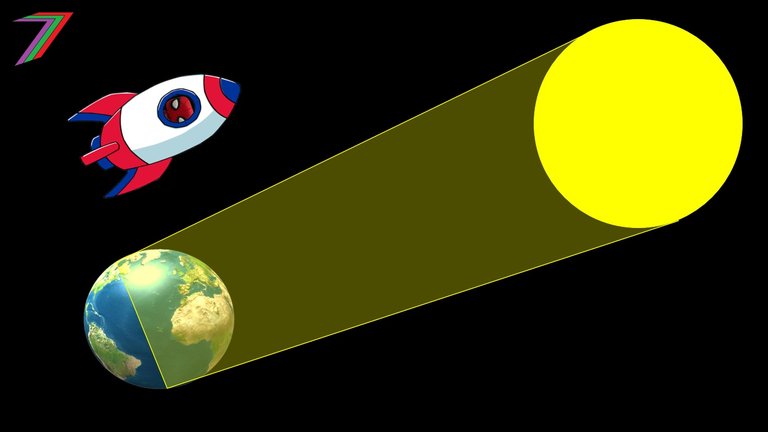
Humans have become the masters of their immediate environment. However, the environment spans far beyond what humans can control. The biggest influence on the global environment is the sun and it is millions of kilometres away. Anything that happens on the sun and between the sun and the Earth can greatly affect the environment on Earth.
The Earth’s atmosphere is affected by solar winds (stream of charged particles released from the sun) and cosmic rays (high-energy protons and atomic nuclei that move through space at nearly the speed of light). The Earth’s atmosphere and magnetic field protects Earth from solar winds (Science Daily) and the solar winds protects Earth from cosmic rays (space.com). When the sun’s magnetic field weakens, the strength of the solar winds decreases; therefore, more cosmic rays penetrate the Earth’s atmosphere. This causes more cloud formation and weakened jet streams (core of strong winds around 5 to 7 miles above the Earth’s surface).
The extent of cloud cover affects temperatures. Low lying clouds partially blocks sunlight and creates a cooling effect. Higher clouds partially prevents heat escaping the earth and creates a warming effect. (National Geographic). The strength of the jet streams determine how straight it flows. A weaker flow causes the flow to become wavy and shift south. This causes some places further north to experience far high temperatures than normal and places further south (nearer the equator) to experience far lower temperatures than normal (Nexus Newsfeed). The shift in the jet streams also affect precipitation causing more rainfall and possibly floods in some areas while causing draughts in other areas (Global Research).
Cosmic rays also appear responsible for many of the worst earthquakes and volcanoes. (Global Research). Cosmic rays are able to penetrate very deep below the Earth’s surface. This could be causing more earthquakes and volcanoes (The Watchers).
Even though we cannot control the sun or the effects it can have on Earth’s environment, we can predict them to a certain extent. The ability to predict them enables us to be able to prepare and respond to them. We can do what nature has always done but we can improve our chances of success by planning how we can adapt rather than relying purely on instinct or evolution when changes are forced upon us.
Potential large scale destruction (e.g. ozone layer depletion)
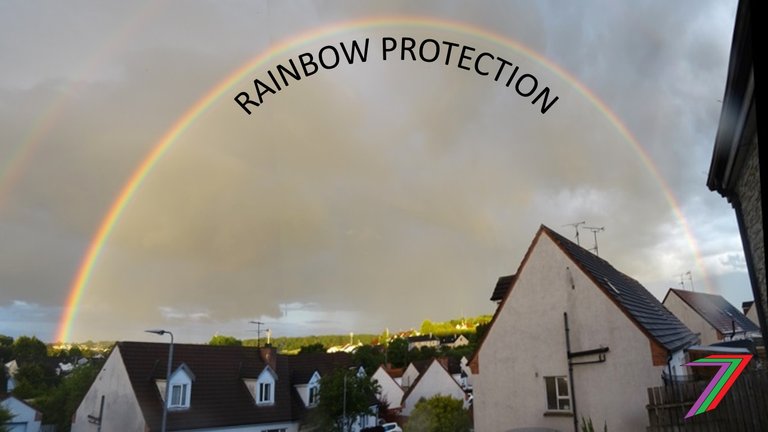
We cannot control what happens on the sun or do anything about the events occurring far away in space. However, we can still make things worse for ourselves by meddling (intentionally or unintentionally) with the Earth’s atmosphere. The Earth’s atmosphere is the final defence against electromagnetic radiation from the sun. It mostly blocks electromagnetic radiation that causes negative impacts such as ultra-violet, x-rays, and gamma rays. At the same time, it allows visible light, which is essential to supporting all life on Earth (answers.com). It could be catastrophic for all life, if the Earth’s atmosphere is damaged or rendered unable to perform its functions.
The ozone layer (located in Earth’s stratosphere) absorbs most of the sun’s ultraviolet radiation (e.g. dangerous UV-B and UV-C). Humans have done considerable damage to the ozone layer through emission of gases such as Sulphur Oxides, Nitrogen Oxides and coal fly ash (CFA) (containing bromine, fluorine and iodine). Geoengineering is a major culprit of this damage. Geoengineering is the deliberate large-scale manipulation of the planetary environment including, but not limited to, dispersing particulate matter into the atmosphere to alter climate (J. Marvin Herndon et al 2018). The US military have been conducting geoengineering since as early 1958 and continue to do so with increased intensity and range.
The ozone layer is being depleted in many other ways. Launching of rockets and satellites into the upper atmosphere causes pollution that damages the stratosphere (Global Research). Radioactive materials from nuclear weapons testing (over 2,000 tests since 1958) and nuclear power plant accidents are causing significant damage to the ozone layer; most notably the 2011 ozone hole over the artic, which was caused by the Fukushima disaster (Global Research). Ionospheric heaters cause disturbances to the ozone layer (HAARP cited by JMM.NU). Emissions from high altitude aircraft is also causing the ozone layer to deplete (Xue Xi Tie et al 1994).
The 1987 Montreal Protocol, which was eventually signed by almost every country in the world, gradually banned the use of CFCs (Chlorofluorocarbons). According to J. Marvin Herndon et al 2018, this agreement did not stop the damage being caused by other more dangerous chemicals not covered in the protocol and its various iterations. All of the activities described in previous two paragraphs can and still do continue to occur; thus the ozone layer continues to deplete. It is worth noting that most of the activity that is causing the most damage to the ozone layer is being done by Governments. Most of these activities could be halted immediately.
Ultra-violet radiation is the main cause of skin cancer (Skin Safe). The number of cases of skin cancer are increasing across the world (e.g. over the past 30 years, skin cancer cases per 100,000 people have increased by over 50% in the USA (National Cancer Institute) and by over 100% in the UK (Statista) ). Australia continues to have the highest rate of skin cancer and it continues to increase despite measures taken by the Australian Government (Cancer Australia). High levels of ultra-violet radiation can be dangerous to plants and animals. It may affect photosynthesis in plants and cause defective pollen development. Insects and microorganism are dying from UV-C exposure (J. Marvin Herndon et al 2018).
Below are several figures containing graphs for the UV Index for several States in the US. The States that have been selected spread over most of the country so as to provide a reasonable sample of UV Index data. Figure 1 contains the number of days when the UV Index is very high or extreme. Figure 2 contains the number of days when the UV Index is extreme for States with more exposure to ultra-violet radiation. Figure 3 contains the number of days when the UV Index is very high for States with less exposure to ultra-violet radiation.
Figure 1: Days when UV Index is Very High or Extreme for selected US States (1995 to 2019)
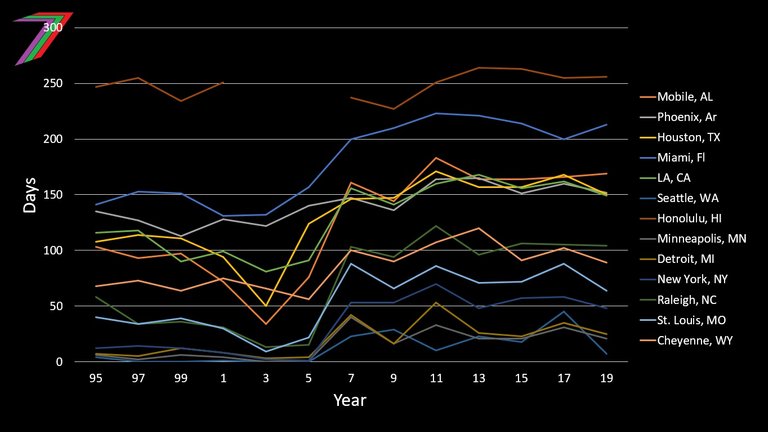
Figure 2: Days when UV Index is Extreme for selected US States (1995 to 2019)
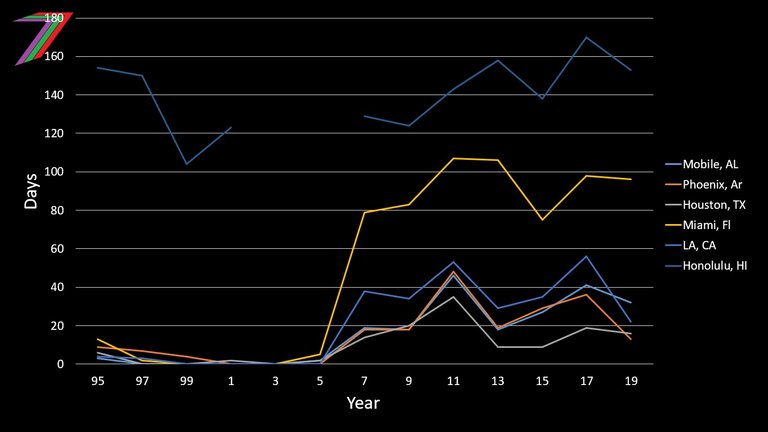
Figure 3: Days when UV Index is Very High for selected US States (1995 to 2019)
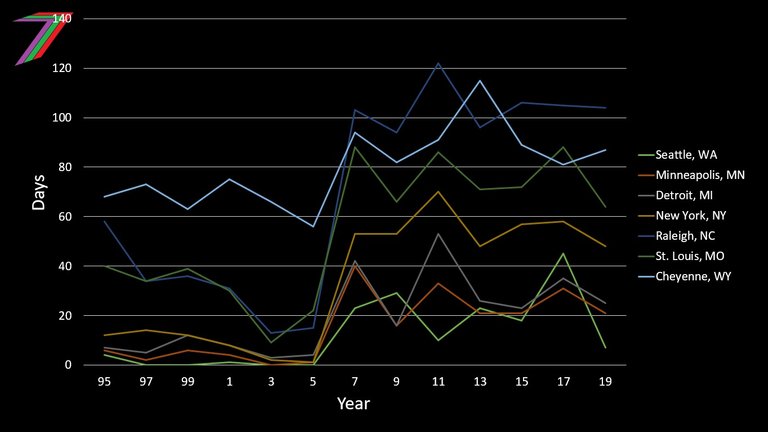
Source: Multiple pages from Climate Prediction Center
Note 1: Data for all 50 States are available on this website.
Note 2: Data has been divided to show the increase from very high to extreme for States with more exposure to UV radiation. This is not demonstrated with the combined values of very high and extreme.
According to the above graphs, the UV Index jumped for most States in 2007. The UV Index has continued to remain high. There was another increase in 2011. This coincides with the Fukushima disaster. Data from 2019 onwards was not available. Historical UV Index data is not easily available for most countries.
Are people willing to change their behaviour to reduce the damage caused to the environment?
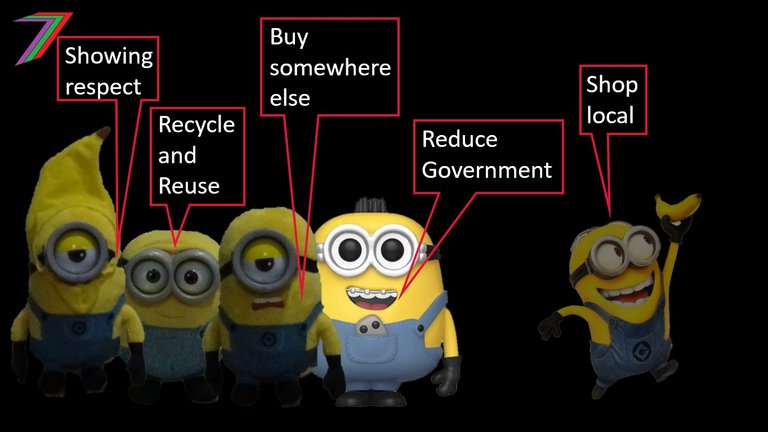
Positive change does not begin with Governments, Big Business or any other Establishment organisation. It occurs when enough individuals decide to take action to enable change to occur. Sadly, change is slow. Many people feel unaffected by much of the damage that has been caused (i.e. partially ignorant or do not think it will ever affect them directly). Therefore, for many, the incentive to change behaviour is minimal. Motivation for change will increase when the damage caused starts to obviously affect people’s lives. At that point, the extent of the damage could be too severe for most other species. Damage caused may even escalate to the point that humans may begin to struggle to survive; see ozone depletion example in previous section.
Government, mainstream media, social media, and puppet scientists have played a role in misdirecting people from serious environmental problems and causes to manageable natural phenomena. There is an obsession with climate change and the vilification of carbon dioxide. Climate change can present serious problems for any species not well prepared or able to respond to the changes. Climate change also creates opportunities for some species to thrive. Humans need to be smart enough to know how to benefit from the advantages while minimising the costs of the disadvantages. Climate change is inevitable, attempting to stop it is both foolish and arrogant. The climate change obsession, as with many of the Establishment’s objectives, has successfully managed to divide people and provided another excuse for Governments to take more money off the people. While at the same time, they are distracting; therefore, inhibiting genuine responses to environmental problems.
Not everyone is narrowly focused on themselves or deceived by propaganda. Some people are genuinely concerned about the damage being caused to the environment and the suffering of other species. They show their concern through their actions. This could involve reducing waste by focusing on what they need, maintaining and repairing instead of replacing, recycling and reusing whenever feasible. They may collect their own water, generate their own energy and even grow their own food.
People can exert pressure on businesses through their spending habits. Businesses will reduce economic activity that damages the environment if it becomes less profitable than economic activity that does not or causes less damage to the environment. People can exert pressure on Governments to stop damaging the environment directly. They can exert pressure on them to end military operations that damage the ozone layer. They can pressure them to stop funding or subsidizing businesses that are causing significant damage to the environment. People can exert pressure on Government to simply stop intervening (e.g. carbon taxes, requirements, standards, etc.) and return power and decision-making to the people.
Conclusion
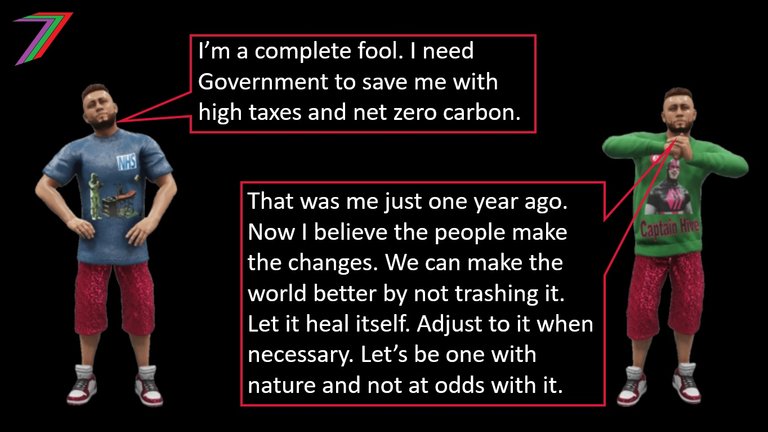
We are in a unique category of species because of our intelligence. It has enabled us to do amazing things for ourselves. However, many of us have limited perceptions; this hinders our ability to see beyond ourselves and beyond our immediate future. Many of our advances and innovations have caused or contributed to the destruction of something else. Our immediate benefit is someone else’s disbenenfit and/or our future disbenefit.
Our gift of intelligence can play an important role in stopping and reversing the damage we have caused to the environment. Positive change comes from individuals working together and sharing knowledge on how we can continue to improve our own lives while also considering the broader consequences to other people, other species, and future generations. Our intelligence gives us advantages over other species but our intelligence does not mean we are the masters of our environment nor are we able to control every aspect of it to suit our whims.
More posts

If you want to read any of my other posts, you can click on the links below. These links will lead you to posts containing my collection of works. These 'Collection of Works' posts have been updated to contain links to the Hive versions of my posts.
Hive: Future of Social Media

Spectrumecons on the Hive blockchain





Suppose we live on another planet, will it be safe from the pollution caused by industrial facilities? Of course not, instead of spending this wasted money on reducing pollution that causes global warming, we spend it on inventions that do not benefit at all.
Pollution damages any environment that's why we need to minimise it. If people desire less pollution they can do so by not polluting and not supporting businesses that cause pollution. They can also hold Governments accountable for the pollution they are causing.
We must change the way we deal with the environment so that species of animals that are important in our daily life and food do not become extinct.
It is about respecting the environment and its other inhabitants. The environment can provide us with everything we need, we don't need to damage it in the process.
This article is so cool!
Thanks.
This post has been manually curated by @steemflow from Indiaunited community. Join us on our Discord Server.
Do you know that you can earn a passive income by delegating to @indiaunited. We share 100 % of the curation rewards with the delegators.
Here are some handy links for delegations: 100HP, 250HP, 500HP, 1000HP.
Read our latest announcement post to get more information.
Please contribute to the community by upvoting this comment and posts made by @indiaunited.
This is a well-thought-out piece about our relations to the bigger picture.
As far as I'm concerned, I agree that government is not the solution. All they do with the big businesses is the pretense of being environmentally friendly while polluting elsewhere.
!discovery 47
They pretend to care about the environment so they can get more tax money and look like they are doing something noble at the same time so they can keep people voting for them.
They will give themselves loopholes to not abide by the "green" rules they set up.
This post was shared and voted inside the discord by the curators team of discovery-it
Join our community! hive-193212
Discovery-it is also a Witness, vote for us here
Delegate to us for passive income. Check our 80% fee-back Program
Your content has been voted as a part of Encouragement program. Keep up the good work!
Use Ecency daily to boost your growth on platform!
Support Ecency
Vote for new Proposal
Delegate HP and earn more
I think, awareness isn't our problem when it comes to environmental degradation and the reason why this is so is because there are people who are benefiting from these pollution and degradation hence it makes it very easy to continue the pollution at the expenses of the environment, government, big industries and many more. They attempt to farm resources at a rate without even giving chance for recovery. Sometimes people take and take without making attempts at replenishing it afterall they won't live forever to bear the consequences.
It's a sad situation when it comes to man and his environment, change is slow like you've mentioned, becomes even more difficult by the day.
@tipu curate
Upvoted 👌 (Mana: 32/42) Liquid rewards.
Thanks @josediccus. You hit on a key point about them not caring because it appears the damage to the environment is going to hurt future generations much more than the present generations. The future is becoming the present. The worse it gets the more difficult and longer it becomes to change course. Nature is excellent at finding new ways to rebalance and thrive but unfortunately we might become forced out for this to occur.
Serving our environment not the other way round, that’s a new perspective… never seen it that way
We shouldn't serve the environment. We should work with it and adapt when necessary. We are not above nature we are part of it.
Now, I understand this
Thank you so much.
This article 'Climate Disruption: It’s Not Due to CO2' on the Global Research website explains how carbon dioxide is not a problem or a cause of climate change. It contains an interview between Silvia Terribili (interviewer) and Professor von Werlhof (scientist). They discuss the far more serious problem of ozone depletion and ultra-violet radiation from the sun. Professor von Werlhof also wrote a letter to Greta Thunberg explaining the nature of the problem.
This article is all true, we humans are responsible for everything, if we want to make a change for our world, let's make it better.